NAFCILLIN - INJECTION
PHONETIC PRONUNCIATION: (naff-SIL-in)
COMMON BRAND NAME(S): Unipen
GENERIC NAME(S): nafcillin sodium
Uses
USES: This medication is used to treat a wide variety of bacterial infections. This medication is known as a penicillin-type antibiotic. It works by stopping the growth of bacteria.
How to use NAFCILLIN - INJECTION
HOW TO USE: This medication is given by injection into a vein as directed by your doctor, usually every 4 to 6 hours. The dosage is based on your medical condition and response to therapy. For children, the dosage is also based on weight. If you are giving this medication to yourself at home, learn all preparation and usage instructions from your health care professional. Before using, check this product visually for particles or discoloration. If either is present, do not use the liquid. Learn how to store and discard medical supplies safely. Give aminoglycosides (such as gentamicin) separately from this medication. Do not mix together in the same IV fluid. For the best effect, use this antibiotic at evenly spaced times. To help you remember, use this medication at the same time(s) every day. Continue to use this medication until the full prescribed amount is finished, even if symptoms disappear after a few days. Stopping the medication too early may allow bacteria to continue to grow, which may result in a return of the infection. Tell your doctor if your condition persists or worsens.
Side Effects
Precautions
Interactions
Overdose
Images
Reviews
Faq for NAFCILLIN - INJECTION
Nafcillin Injection is used to treat bacterial infections, specifically those caused by certain types of penicillin-resistant Staphylococcus bacteria.
Nafcillin works by interfering with the growth of bacteria, preventing them from forming a cell wall and ultimately killing them.
Common side effects may include diarrhea, nausea, vomiting, rash, and itching. Serious side effects such as allergic reactions and liver problems are rare but possible.
Nafcillin Injection is usually given intravenously (into a vein) by a healthcare professional. The dosage and duration of treatment will depend on the specific infection being treated and the patient's condition.
It is generally safe to use Nafcillin Injection during pregnancy if the benefits outweigh the risks. However, it is important to consult with a healthcare provider for individualized advice.
Yes, Nafcillin Injection can be used in children. The dosage will be adjusted based on the child's weight and age.
Nafcillin may interact with other medications such as blood thinners, oral contraceptives, and certain antifungal drugs. It is important to inform your healthcare provider about all the medications you are taking to avoid potential interactions.
The response to Nafcillin Injection varies depending on the severity of the infection. Improvement is usually seen within a few days, but it is essential to complete the full course of treatment as prescribed by the healthcare provider.
No, Nafcillin Injection is only effective against bacterial infections and cannot be used to treat viral infections such as the common cold or flu.
Disclaimer
IMPORTANT: HOW TO USE THIS INFORMATION: This is a summary and does NOT have all possible information about this product. This information does not assure that this product is safe, effective, or appropriate for you. This information is not individual medical advice and does not substitute for the advice of your health care professional. Always ask your health care professional for complete information about this product and your specific health needs.
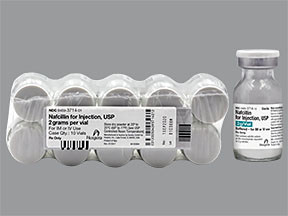
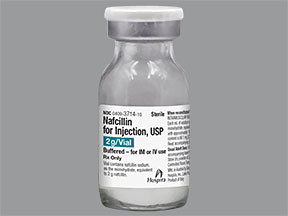
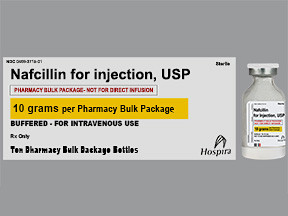
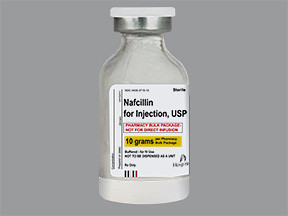
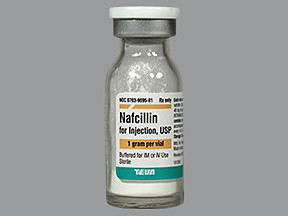
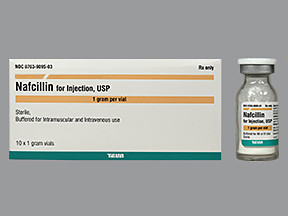
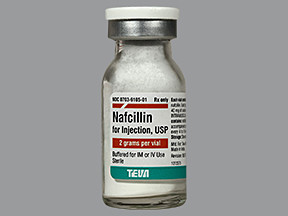
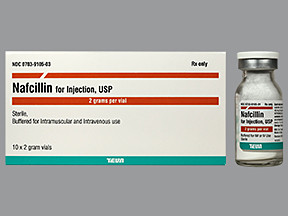
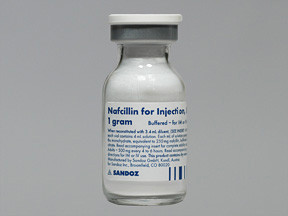
No Reviews Yet